Automatic language translation
Our website uses an automatic service to translate our content into different languages. These translations should be used as a guide only. See our Accessibility page for further information.
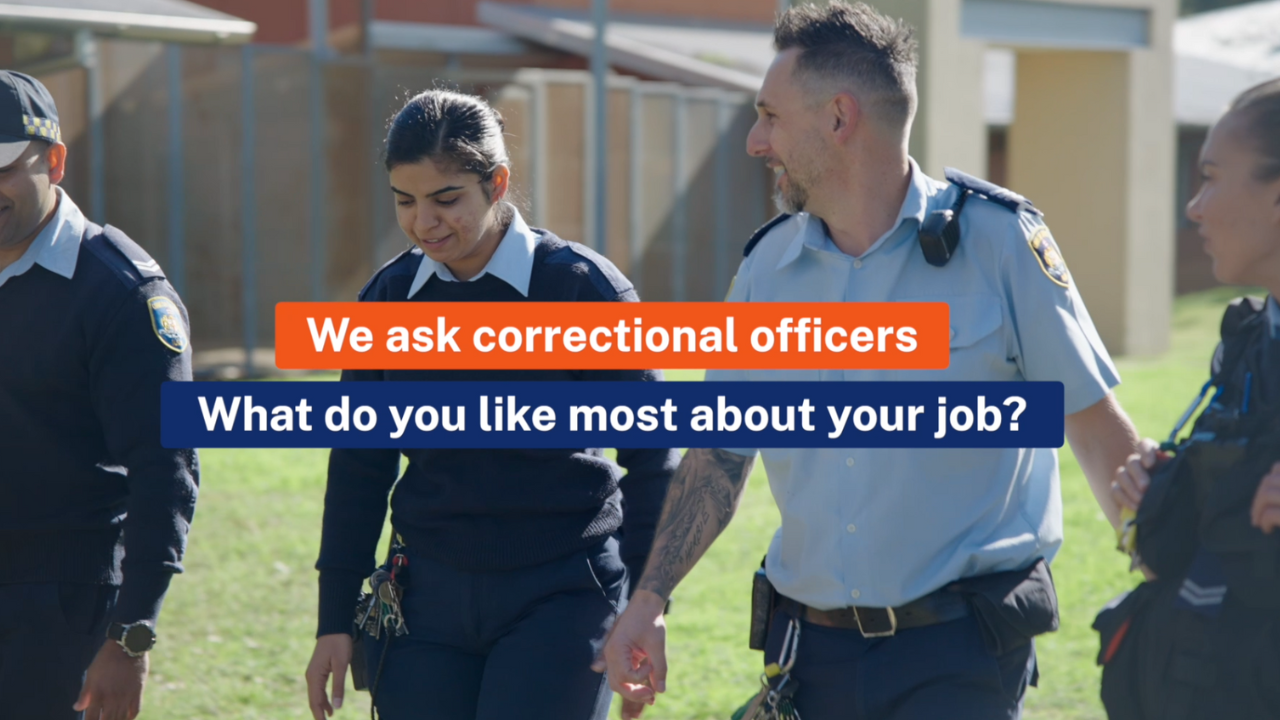
We ask correctional officers working at Corrective Services (CSNSW) what is it like to work at CSNSW as a correctional officer.
We ask correctional officers working at Corrective Services (CSNSW) what is it like to work at CSNSW as a correctional officer.
(Group of Correctional Officers interacting outside a correctional centre.)
Matt, Senior Correctional Officer: What I like best about my job is giving the inmates skills to help them reintegrate back into society.
(Matt supervising inmates in their work-related activities within a correctional centre.)
Claire, Correctional Officer: We see women come in and we see them leave and pick their lives up and make the most of it. They learn tools in here through programs that equips them for life on the outside which can be really great to watch.
(Female inmates using tools to build light fittings in their work-related activities within a correctional centre.)
Claire: The camaraderie when you get into the facility is really excellent, we call each other blue and we have each other's backs all the time.
(Claire interacting with a group of Correctional Officers within a correctional centre.)
Claire: If you considering joining Corrective Services, I think definitely give it a go it's going to be a really rewarding job and the conditions are really great.
(Claire speaking outside the gates of a correctional centre.)
"I joined CSNSW when the centre opened at Wellington. At first CSNSW was just a good opportunity to get a secure job close to home. I wasn't sure how I would feel about working in a gaol environment, so I joined in a non-custodial role at first. I found I was comfortable working in the gaol so I applied for a overseer position. I worked as an overseer for about 11 years and I have worked as a senior correctional officer for about 5 years. You are not stuck in the one task/routine. The role offers diversity, you can move around and work in different areas that have different routines and different work environments, which keeps the work interesting.
- Michael, Senior Correctional Officer – CSNSW
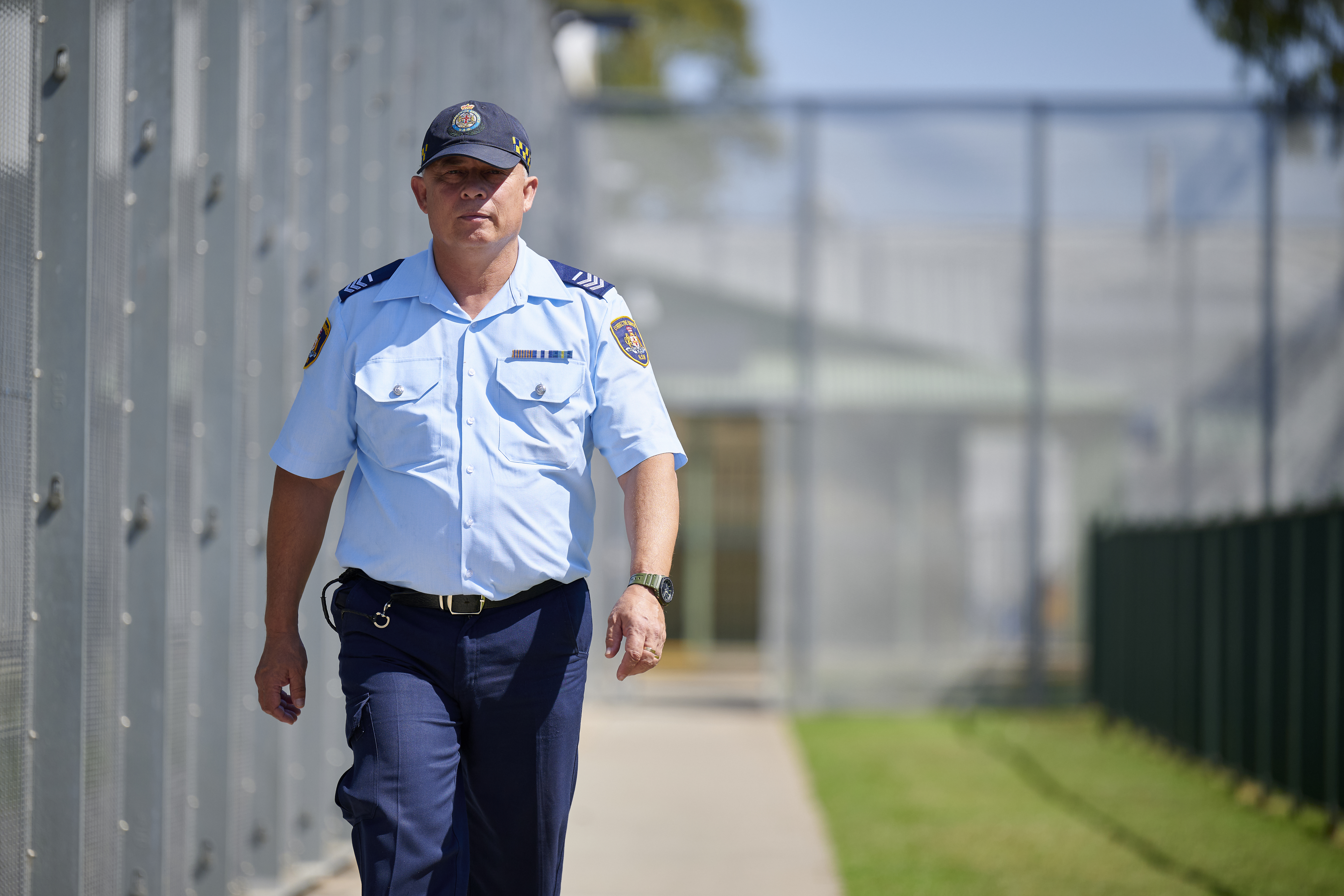
Correctional Officers play a positive role in keeping the community safe and help offenders find ways to improve their lives. They supervise inmates held in correctional facilities such as prisons and court cells across New South Wales.
Working within a supportive team environment on a 24/7 rotating roster system, Correctional Officers must interact with inmates to ensure the safety and security of the facility.
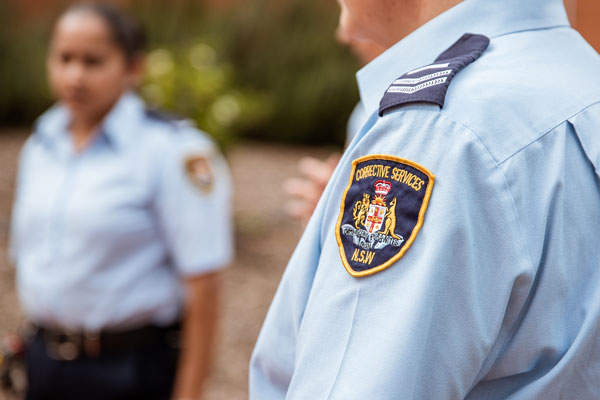
The necessary experience and qualities considered for the role include, current or capacity to complete, Certificate III in Correctional Practice in accordance with specified CSNSW timeframes. Ability to drive official vehicles and possess an appropriate level of driver’s licence to meet all job requirements (if required). Preparedness to undertake shift work in a rotating roster, as required.
Becoming a Correctional Officer offers a fulfilling and empowering career path for women. Corrective Services NSW are committed to fostering an inclusive workplace that values diversity and promotes gender equality. Here’s why a career as a Correctional Officer can be an excellent choice for women:
We believe that women bring unique perspectives and strengths to CSNSW. We are dedicated to ensuring women can build rewarding and impactful careers here.
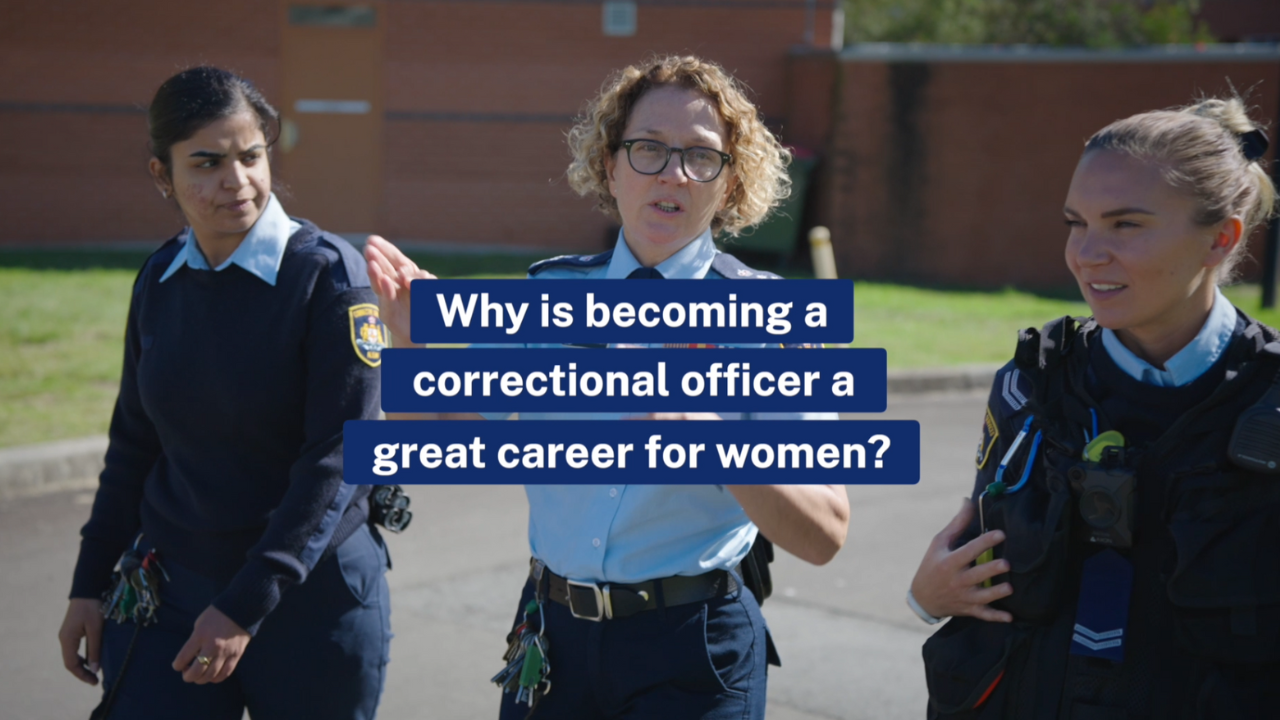
Why is becoming a Correctional Officer a great career for women?
Why is becoming a Correctional Officer a great career for women?
I would strongly encourage any woman looking at a career in Corrective Services to not be afraid, come forward, inquire, and join.
We have flexible work practices that accommodate for people's work-life balances.
There's such a clear path for progression, especially for the wider community and especially for women.
There's everything to gain and nothing to lose.
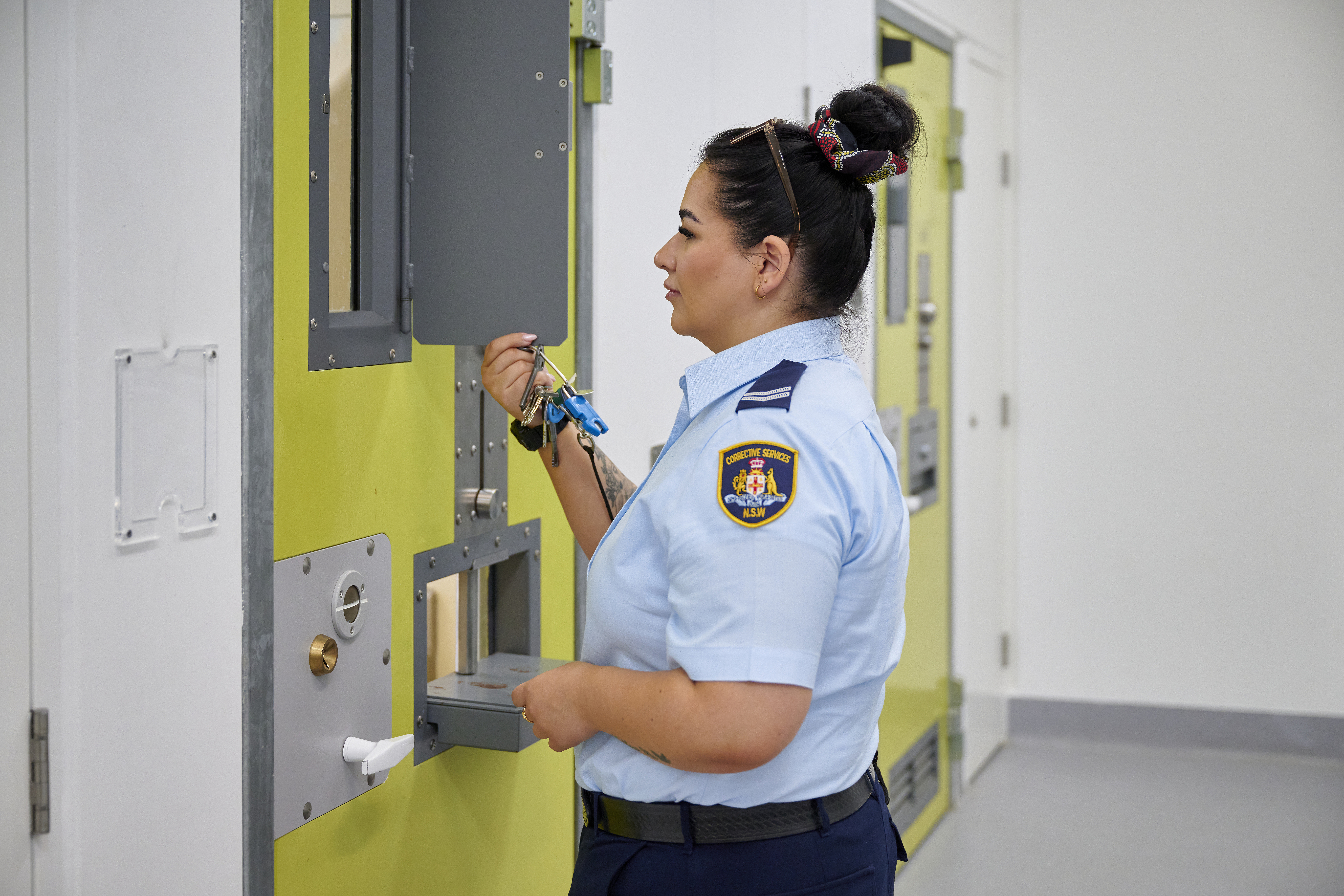

Daniel shares the lifestyle, affordability, and careers waiting in regional NSW.
Daniel shares the lifestyle, affordability, and careers waiting in regional NSW.
It’s a beautiful place to work, and there are so many great people to work with. One of the benefits of working in a regional location is the opportunities for promotion — you get more face time with management to prove yourself.
What anchors me to regional work and life is the serenity. When I’m not at work, I spend most of my time outside — at the beach, in national parks, or at the skate park with my kids. Another major benefit is the affordability and the opportunities it provides for raising a young family.
There are great opportunities for Correctional Officers in regional NSW. Whether you’re relocating from a metro area or starting your career, support is available to make the move smooth.
The Welcome Experience, an NSW Government initiative, helps essential workers and their families settle into regional life and work. You’ll receive tailored advice, concierge-style support, and a Local Connector who can guide you to the right services and community contacts.
You can learn more about the Welcome Experience here.
Pre-employment checks are a critical part of the Correctional Officer recruitment process and includes a national criminal history check including fingerprint check, contact with offender check, medical and fitness assessments and other reference and conduct checks.
Prior to employment at a correctional facility, Correctional Officers must successfully complete a 12-week full-time primary training course that equips officers with policy and procedure knowledge, weapons training, and officer survival training.
Following the 12-week primary training course, officers will be required to complete a number of on-the-job assessments in order to obtain a Certificate III in Correctional Practice.
Last updated: